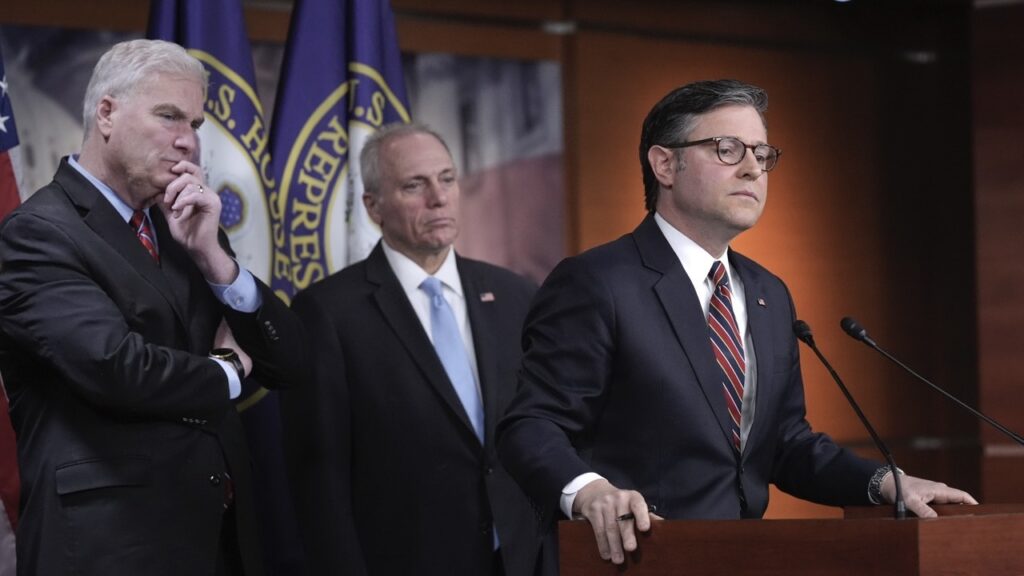Share
WASHINGTON — The Supreme Court on Wednesday upheld Trump administration rules allowing some employers to decline to provide contraceptive coverage on religious or moral grounds, which could leave more than 70,000 women without cost-free birth control.
The high court ruled 7-2 for the administration, which made a policy change to allow some employers who cite religious or moral objections to opt out of providing no-cost birth control required by the Obama-era healthcare law. Lower courts had previously blocked the Trump administration’s changes.
“We hold today that the Departments had the statutory authority to craft that exemption, as well as the contemporaneously issued moral exemption. We further hold that the rules promulgating these exemptions are free from procedural defects,” Justice Clarence Thomas wrote for a majority of the court.
The government had previously estimated that the rule changes would cause about 70,000 women, and at most 126,000 women, to lose contraception coverage in one year.
Justice Ruth Bader Ginsburg cited those numbers in dissenting.
“In accommodating claims of religious freedom, this Court has taken a balanced approach, one that does not allow the religious beliefs of some to overwhelm the rights and interests of others who do not share those beliefs. Today, for the first time, the Court casts totally aside countervailing rights and interests in its zeal to secure religious rights to the nth degree,” she wrote.
Birth Control Has Been a Topic of Contention Since Health Care Law Passed
Two liberal justices who sided with the administration, Justice Elena Kagan and Justice Stephen Breyer, nonetheless suggested the legal fight over the Trump administration changes may not be over. Future administrations could also attempt changes.
Birth control has been a topic of contention since the health care law was passed. Initially, churches, synagogues and mosques were exempt from the contraceptive coverage requirement. The Obama administration also created a way by which religiously affiliated organizations including hospitals, universities and charities could opt out of paying for contraception, but women on their health plans would still get no-cost birth control. Some groups complained the opt-out process itself violated their religious beliefs.
That opt-out process was the subject of a 2016 Supreme Court case, but the court, with only eight justices at the time because of the death of Justice Antonin Scalia, didn’t decide the issue. It instead sent both sides back to see if they could work out a compromise.
After the Trump administration took over, officials announced a rule change that allows many companies and organization with religious or moral objections to opt out of covering birth control without providing an alternate avenue for coverage. But the change was blocked by courts after New Jersey and Pennsylvania challenged it.
RELATED TOPICS:
Two Teens Charged in Shooting Death of Caleb Quick
20 hours ago
Soviet-Era Spacecraft Plunges to Earth After 53 Years Stuck in Orbit
20 hours ago
Tax the Rich? Slash Spending? Republicans Wrestle With Economic Priorities in the Trump Era
20 hours ago
Experts Call Kennedy’s Plan to find Autism’s Cause Unrealistic
21 hours ago
Trump’s Trip to Saudi Arabia Raises the Prospect of US Nuclear Cooperation With the Kingdom
21 hours ago
Oh Ohtani! Dodgers Star Hits 3-Run Homer in Late Rally Victory Over Diamondbacks
21 hours ago
Tariff Talks Begin Between US and Chinese Officials in Geneva
21 hours ago
US-China Tariff Talks to Continue Sunday, an Official Tells The Associated Press
14 hours ago
Categories

US-China Tariff Talks to Continue Sunday, an Official Tells The Associated Press

Two Teens Charged in Shooting Death of Caleb Quick

Soviet-Era Spacecraft Plunges to Earth After 53 Years Stuck in Orbit

Tax the Rich? Slash Spending? Republicans Wrestle With Economic Priorities in the Trump Era














